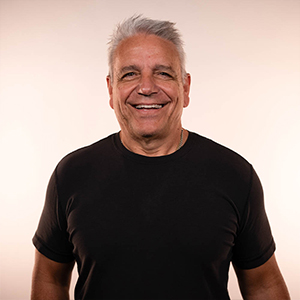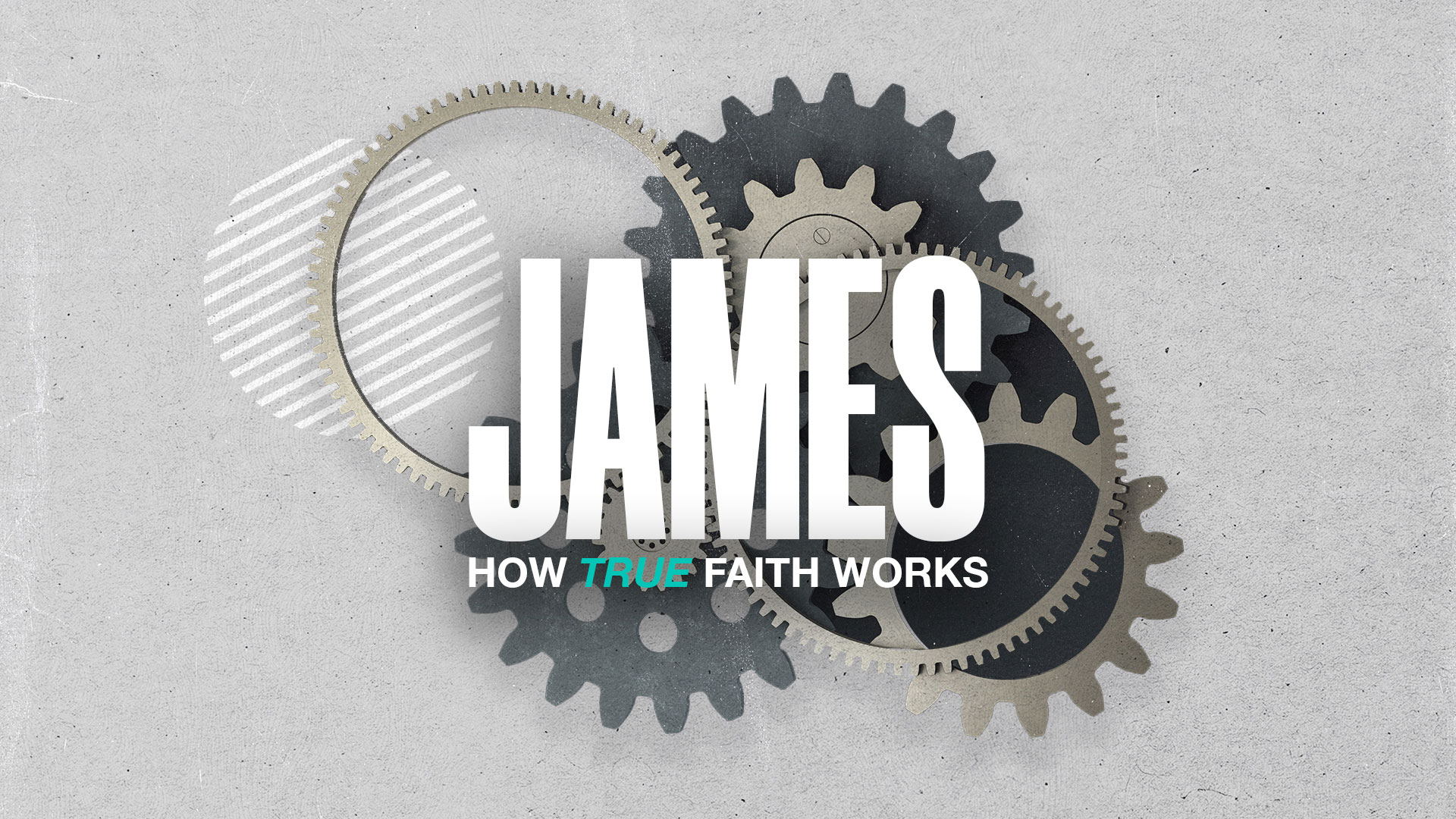True Religion, James 1:26-27
Discussion & Practice
- Read James 1:19-27. Reflecting on this passage and the sermon, what are some ways you realize your tongue has revealed the true state of your heart this week?
- What are some of the differences between false religion and pure and undefiled religion in James?
- After listing some of the differences, what do you think is the core difference between them based on this passage? Explain.
- What are some areas you've found yourself being seduced or "enchanted" by the world? Is there one area in particular right now that's pulling your affections away from the heart of God.
Practice: Read Luke 1:68-79 together as a prayer over the group and whatever you confessed has been seducing or enchanting your heart from question #4. Ask God to break through the darkness and bring you back into his reality. Remember James 4:8 that if you draw near to God he will draw near to you. Ask for that nearness and for his holiness today.
Notes
We’re back in James finishing chapter 1. James is teaching us about genuine faith. We have to be thinking about it all the time. What does it look like and how does it operate in a person’s life. When you receive the gospel, the word of truth, it’s more than words, it’s the power of God inside a person that creates new life. James calls it the implanted word. It comes alive inside of you. It’s not just intellectual. There are new inner desires. Your perseverance will be different. There’s an emotional overhaul. Anger will be dealt with. There’s a purity. There’s a quietness, you’re not so mouthy.
When God transforms you into this, you become a first fruit of creation. An illustration of all that is to come.
For others, there is no evidence of new life. James gives us the image of looking into a mirror that reflects the truth back about me. It’s hard to look at, hard to see. You don’t want to face it and get away from it fast. That’s the person who doesn’t have genuine faith. You get quickly on your own way.
But genuine faith welcomes that truth. It’s an unforgettable thing. It goes with you and you can’t shake it off. It shows you who you are before it tells you what to do.
A radical new self-understanding results in a radical new transformation of life.

The last two verses of James gives us a new way to look at that.

We use the word religion in different ways. A lot of times it’s used negatively. But this is a positive way. Most of the time I use the word religion I use it negatively, but it is also a positive word.
The distinction comes in verse 26 with how a person thinks about himself, contrasted with verse 27.

My life is determined by him. “Before God” means in his presence. Father is an intimate connotation, but it’s before a holy God. He’s the divine priority. I have divine proximity and intimacy with him.
At a minimum, the person who thinks he is religious is defining the parameters himself. The truth hasn’t taken him over. The truths haven’t made any difference in his life. The truth is hard and he won’t let it in. He’s deluded and deceives his own heart.
The American version of Christianity is very comforting. You can go to church and feel spiritual, you can feel the morals are good for the world, but it never really penetrates your life. I see this all the time.
This past week I saw something that Richard Dawkins said on TV. He’s one of the most popular atheist who believes that all religion is bad and false. He said he considers himself a “cultural Christian” but doesn’t believe in it. He likes the hymns and cathedrals. He didn’t want substitute it with another religion.
I wanted you to see primarily that he’s in a unique position, because he’s an atheist and has a lot of things about Christianity that he doesn’t want to let go of. He likes the ethos, but it doesn’t penetrate his heart.
A lot of Americans live in that space. We don’t let it in or let it define us.
The average person would say that this particular belief is enough to save Richard Dawkins. James would have us take a step back to look at the heart.
James is testing us in this chapter, but it’s not a hard test. It’s either really happened inside you or not.
James just wants us to start with our mouth, the tongue.
James’ brother was Jesus. He would have listened to so many things he said, like the sermon on the mount. The sermon on the mount is all through James.
Jesus talks about the religious people of the day and says this:
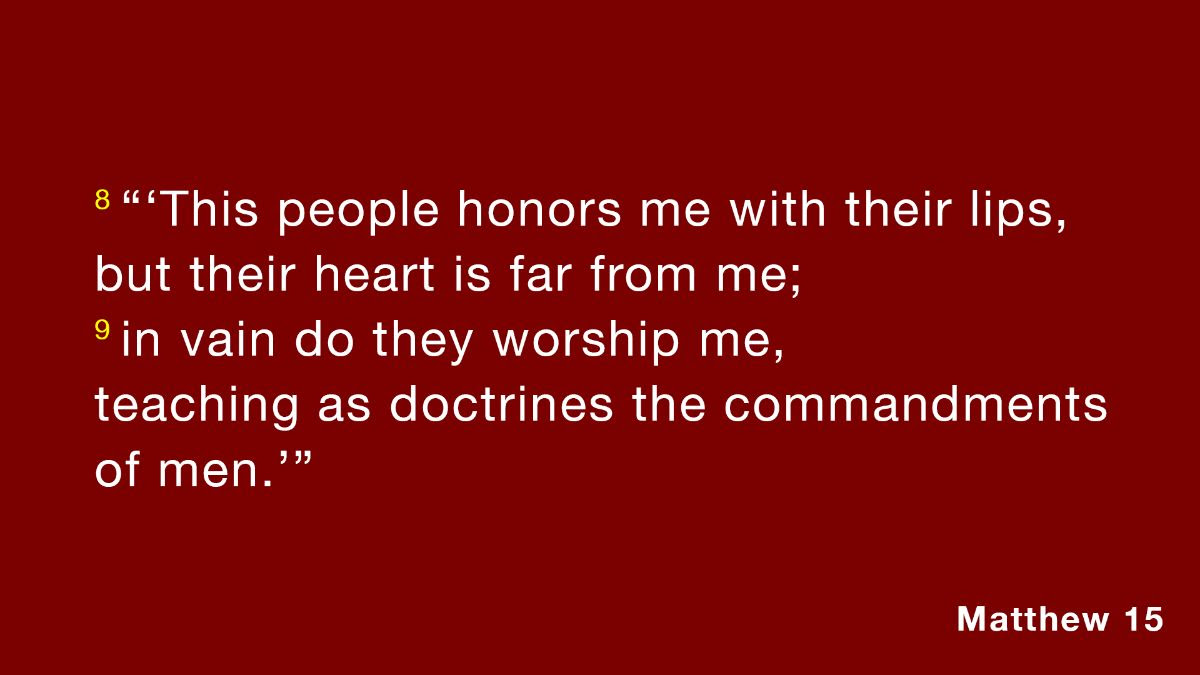
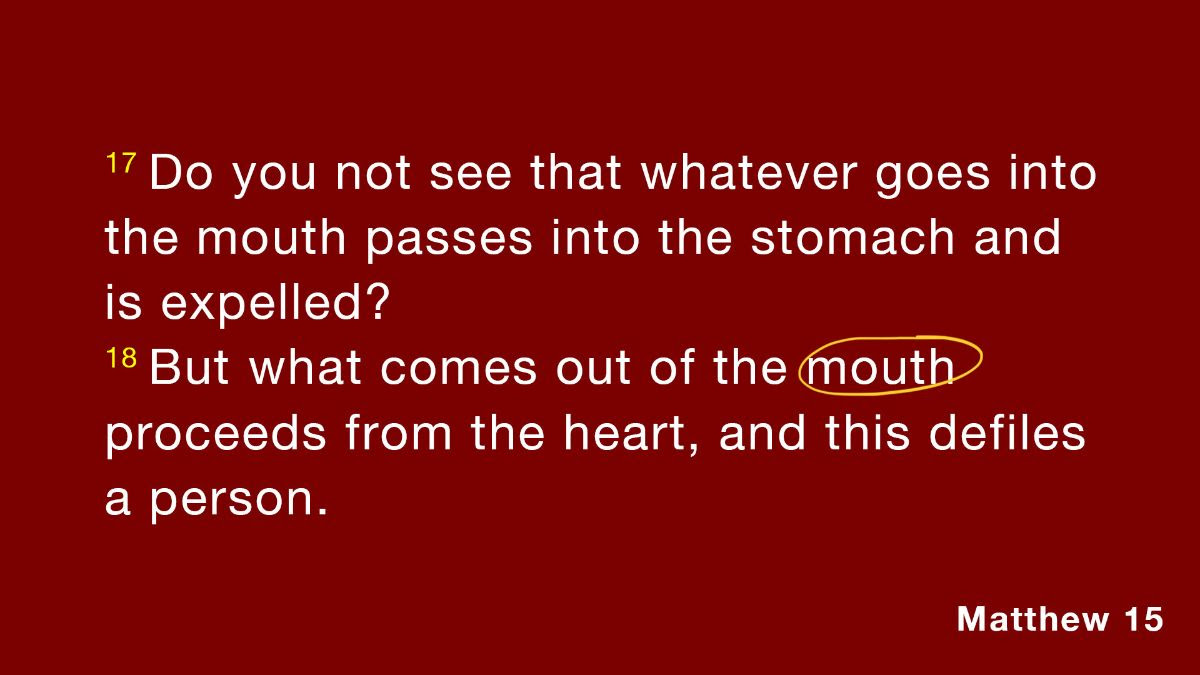
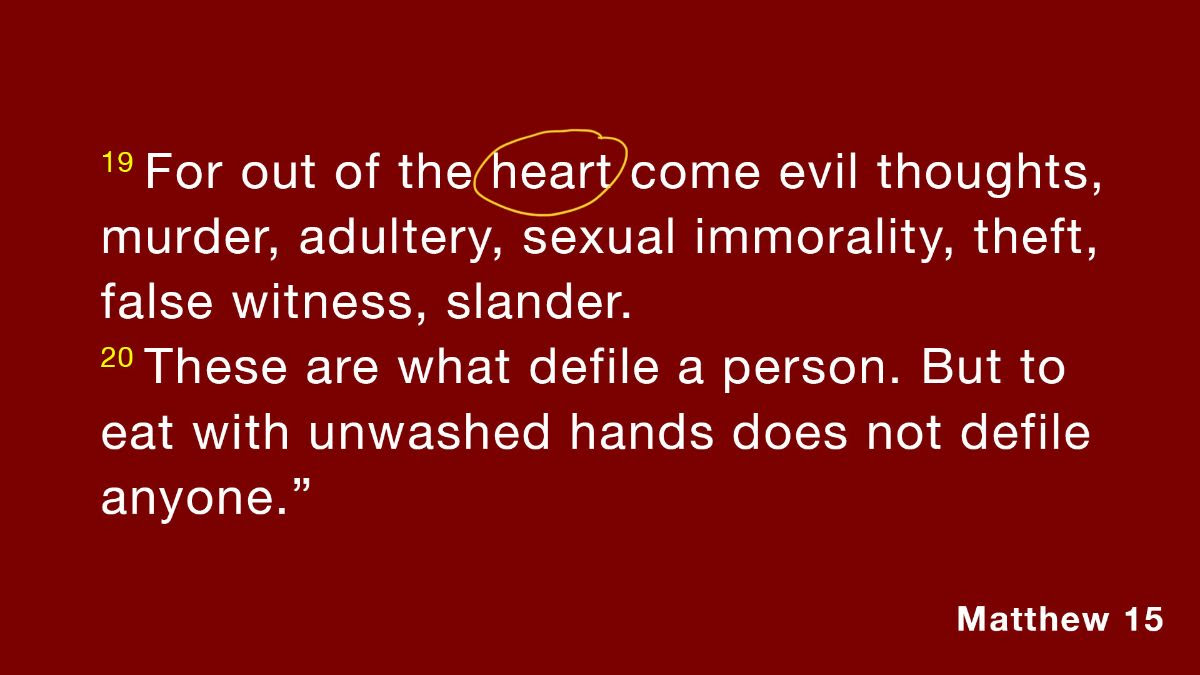
Empty religion will come out of your mouth. James is going to use the word “bridle” when talking about your tongue. It’s used to control a horse. If there’s no bridle on that tongue, then its direction is not clear and it goes where ever it wants to go. Listen to yourself. Do you talk over what God says? Are you a reactor? Does your mouth get way ahead of you in your life? Are you not receptive or reflective or listen enough?
Here’s a list of all the things your mouth can do:
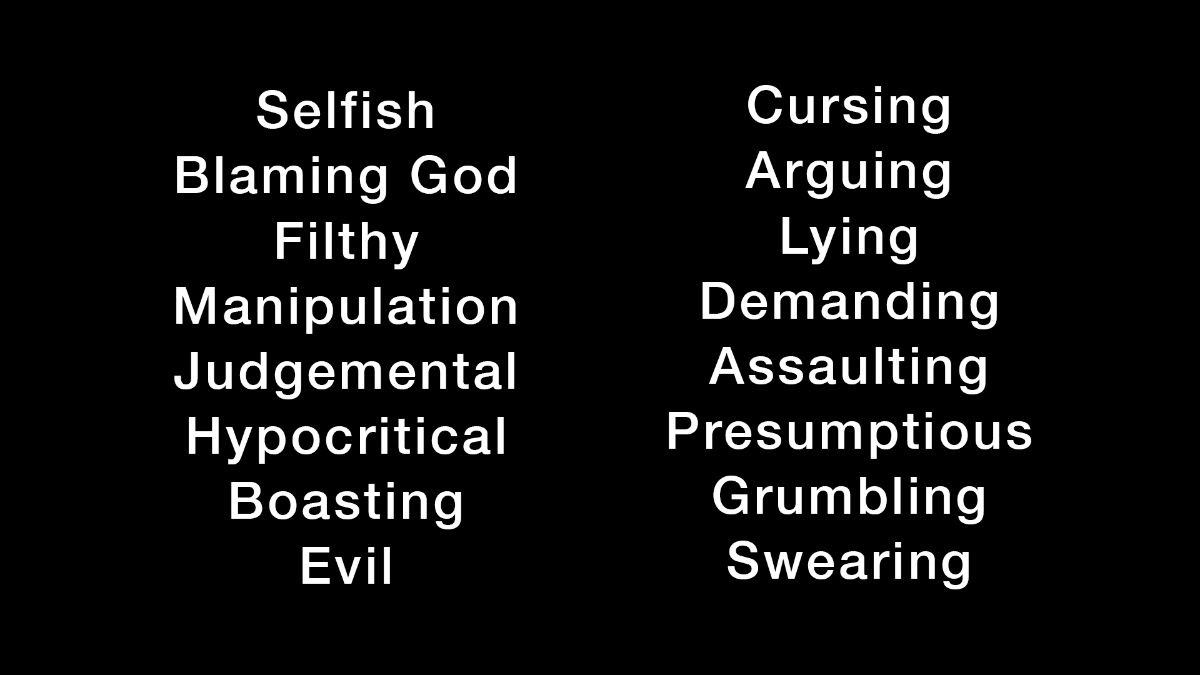
Just listen to your mouth and you’ll know what’s in your heart. I’ll tell you how false faith sounds. We reveal our rebellion with our mouth:
- I’ll tell you what I’m gonna do…
- I refuse…
- I’m done with…
- She’s a…
- I’ll figure it out…
- I’ll never…
- I’m not giving in…
- If he doesn’t, I won’t…
- I hate people who…
- I love it when…
These statements give your heart away. They show where your heart is. James says, listen to yourself.
This is going to hurt a little bit. I’ve been guilty. How do you talk to your spouse? We’re destroying ourselves in our homes verbally with contempt, anger, hate. It’s fast. Whether you’re complaining or just mean, do you hear yourself?
James says it’s the first and easiest test. Does your mouth give you away? Or maybe you just talk a good game, agreeing with the truths of Christianity, but they don’t show up in your life.
If you can’t remember very recently how long it’s been since you’ve bitten your tongue and didn’t say what you wanted to say––if it’s not been long since you’ve had that experience you have a problem. If I haven’t held back words, we are not very in touch with our heart.
The difference between the genuine faith and false faith is that the false one is not in touch with his heart and his mouth gives him away. He doesn’t view his heart from the
Home Depot says, more saving more doing.
James says, less talking, more doing.

That’s empty religion. It’s deceptive, but the tongue will give you away.
The second way James talks about is like this:
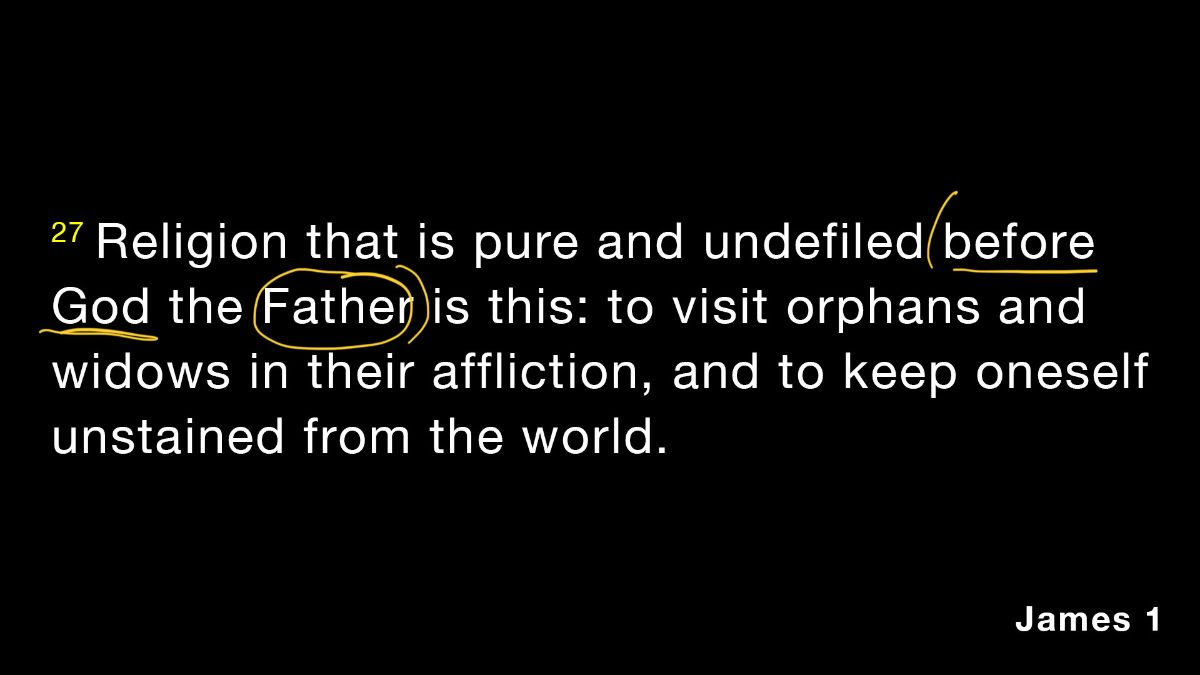
This is a person who has come into the presence of God. It’s not just about do’s and don’ts. You become a new kind of person before you do anything. This atmosphere that I’m in now is one of affection.
The guy with the mirror in James just pops in and then takes off. But this guy with genuine faith sits in it and doesn’t let it go. It becomes part of your DNA. Nothing else takes precedent over who you’re called to be. It’s the environment you live in.
In and from here your life is lived. Holiness and compassion and love. God’s heart and his holiness.
James would have been thinking about the Jewish cultic activities and rituals they did on a regular basis. He raises it to a whole new level of relationship and inner transformation. This is uncontaminated. It’s not polluted. The inward and outward match. James takes the cultic activities and shows something internal that comes from a renewal because I’m in a relationship with Jesus Christ. That environment is a loving, intimate kind of relationship. Because I operate before God, I know what holiness is too. It’s inbred in me because I live in this environment. A person living before God, seeing his holiness, living in his loving care, would live like God, because he spends time with him and wants to be holy just as he is.
Visiting orphans and widows are the archetype for neediness. In that culture, not having parents or a husband would be the worst possible case in that culture. James is saying, look at needy people around you. Do you have a heart for them?
The word for “visit” doesn’t just mean to show up. It’s showing up and doing something, there’s a sacrifice. It’s care and sacrifice.
We say 90% of success is showing up. James says you show up, you need to be prepared to do something when you get there. This is the heart of a person who thinks about needy people. You have a compassionate heart and can’t help it. You can’t experience the Father’s care and not care for the fatherless.
The second thing he says is to keep yourself unstained from the world that we live in. James says if you’re a friend of this world, you’re an enemy of God.
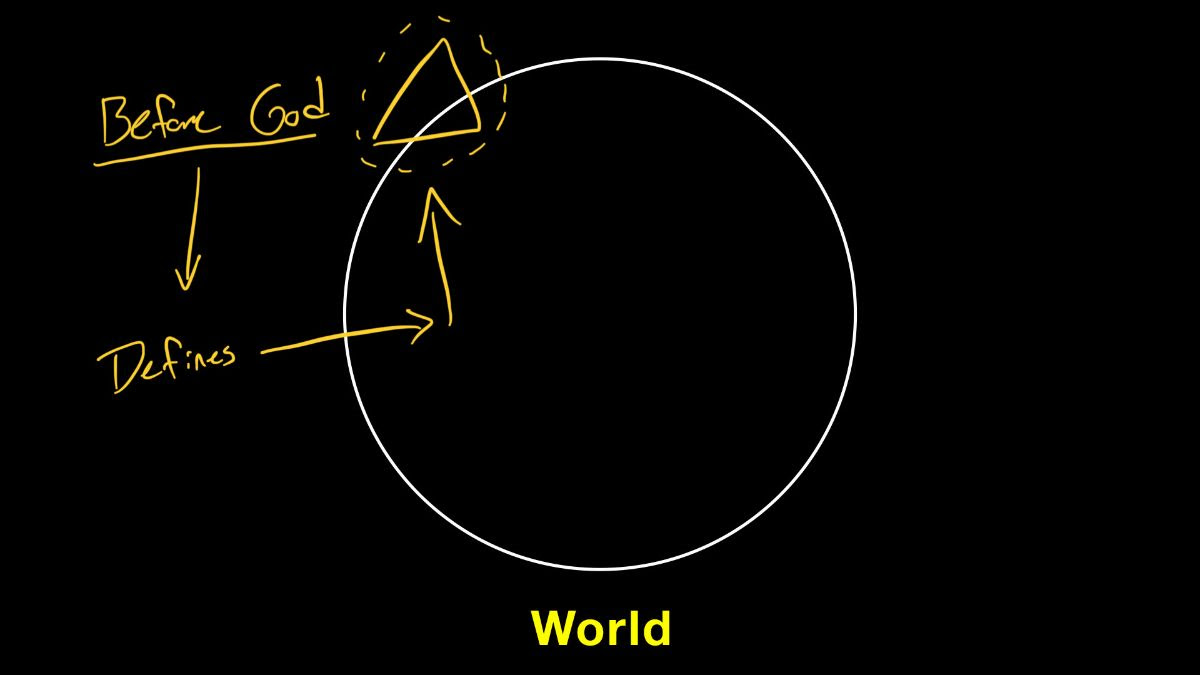
James is talking about the world’s system, its philosophy, methods, strategies, treasures. We’re bombarded with all of those things. James is suggesting that this holiness is a moral purity. It’s easy to get sidetracked and seduced and pulled into the world here. Money, relationships, treasures, pleasures. You ought to consider your life a little bit and see if you think about these things the same way the world does.
James would say a person living in this environment has to think about how the world is affecting him. If there are some dirty things in our life staining our purity, we need to clean it up. Whatever you’re involved in that isn’t holy. Clean it up.
That’s the essence. There’s another way you can look at this that may be helpful.
In the book, The Weight of Glory, C. S. Lewis talks about how our desires for the things of this world become dumb idols. We all get seduced at times into thinking this world is everything. We forget what’s really ultimate and satisfying. He says, ““Do you think I am trying to weave a spell? Perhaps I am; but remember your fairy tales. Spells are used for breaking enchantments as well as for inducing them. And you and I have need of the strongest spell that can be found to wake us from the evil enchantment of worldliness which has been laid upon us…”
This is another way to think about your relationship to the world. You’ve been enchanted. You’re under its spell. You need a greater spell to wake you up from it. We all get under that spell. I sometimes catch myself wondering, why does it feel like I want that so bad? If you’re not careful, that will capture you.
C. S. Lewis says what happens is that you’ve made Earth your Heaven.
In the book Silver Chair, part of the Narnia Series, Prince William has disappeared, Aslan the lion represents God. He sends Jill and Eustace to find him. They have to go into the underworld because they’ve been captured by the Green Lady, the witch. They go and find that he’s been strapped to a silver chair. The witch holds him hostage. They get him out right as the witch shows up. But strangely, she doesn’t go hard after them.
This is what he says,
Now the Witch said nothing at all, but moved gently across the room, always keeping her face and eyes very steadily toward the Prince. When she had come to a little ark set in the wall not far from the fireplace, she opened it, and took out first a handful of a green powder. This she threw on the fire. It did not blaze much, but a very sweet and drowsy smell came from it. And all through the conversation which followed, that smell grew stronger, and filled the room, and made it harder to think. Secondly, she took out a musical instrument rather like a mandolin. She began to play it with her fingers—a steady, monotonous thrumming that you didn't notice after a few minutes. But the less you noticed it, the more it got into your brain and your blood. This also made it hard to think.
And this time it didn't come into her head that she was being enchanted, for now the magic was in its full strength; and of course, the more enchanted you get, the more you feel that you are not enchanted at all.
There is nothing like a good shock of pain for dissolving certain kinds of magic.
"One word, Ma'am," he said, coming back from the fire; limping, because of the pain. "One word. All you've been saying is quite right, I shouldn't wonder. I'm a chap who always liked to know the worst and then put the best face I can on it. So I won't deny any of what you said. But there's one thing more to be said, even so. Suppose we have only dreamed, or made up, all those things—trees and grass and sun and moon and stars and Aslan himself. Suppose we have. Then all I can say is that, in that case, the made-up things seem a good deal more important than the real ones. Suppose this black pit of a kingdom of yours is the only world. Well, it strikes me as a pretty poor one. And that's a funny thing, when you come to think of it. We're just babies making up a game, if you're right. But four babies playing a game can make a play-world which licks your real world hollow. That's why I'm going to stand by the play-world. I'm on Aslan's side even if there isn't any Aslan to lead it. I'm going to live as like a Narnian as I can even if there isn't any Narnia. So, thanking you kindly for our supper, if these two gentlemen and the young lady are ready, we're leaving your court at once and setting out in the dark to spend our lives looking for Overland. Not that our lives will be very long, I should think: but that's small loss if the world's as dull a place as you say."
There’s a more real world.
“You and I have need of the strongest spell that can be found to wake us from the spell of worldliness.”
Hear the words of Zechariah in Luke 1 (ESV) where he recounts the spell you need to hear to break you from that enchantment today.
John the Baptist is about to be born and Zechariah says,
68 “Blessed be the Lord God of Israel,
for he has visited and redeemed his people
69 and has raised up a horn of salvation for us
in the house of his servant David,
70 as he spoke by the mouth of his holy prophets from of old,
71 that we should be saved from our enemies
and from the hand of all who hate us;
72 to show the mercy promised to our fathers
and to remember his holy covenant,
73 the oath that he swore to our father Abraham, to grant us
74 that we, being delivered from the hand of our enemies,
might serve him without fear,
75 in holiness and righteousness before him all our days.
76 And you, child, will be called the prophet of the Most High;
for you will go before the Lord to prepare his ways,
77 to give knowledge of salvation to his people
in the forgiveness of their sins,
78 because of the tender mercy of our God,
whereby the sunrise shall visit us from on high
79 to give light to those who sit in darkness and in the shadow of death,
to guide our feet into the way of peace.”
That’s the spell that breaks the other spells. Jesus has shined a light into your darkness so you can see the delusion. That will make you loving and caring and holy.
Now that you’re a Christian, is there anything you care about you didn’t care about before? And what are you doing about it? Are you sensitive about what comes out of your mouth? Is there anything you need to clean up?
